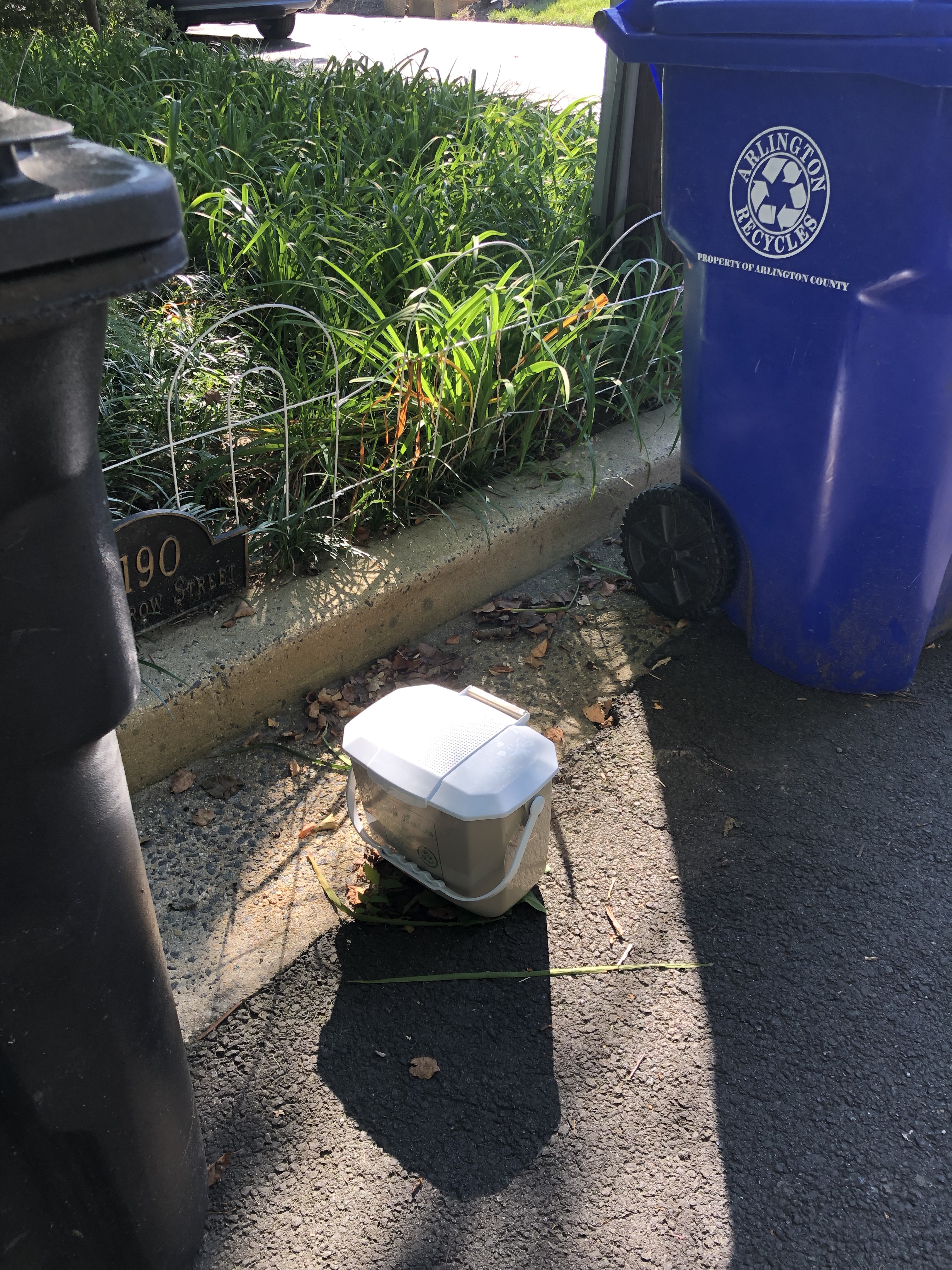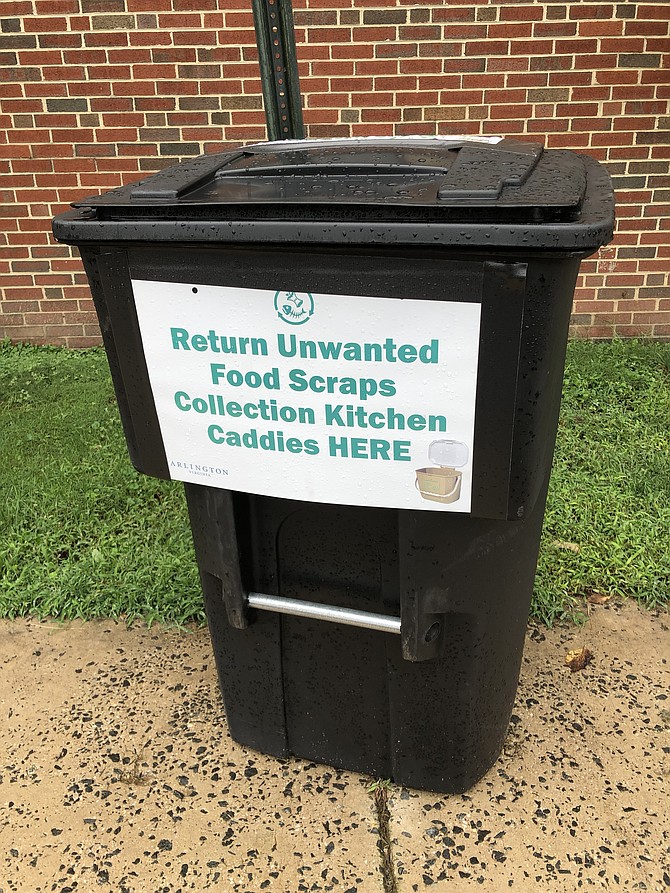 What not to do: Don’t put the caddy out on its own next to the recycling. Just place it in the green cart with a branch or two.
What not to do: Don’t put the caddy out on its own next to the recycling. Just place it in the green cart with a branch or two. Arlington County has resolved to be Zero Waste by 2038. Several new programs are moving the county in that direction, but residents have to do their part.
Basics: Place recyclables in the blue cart, yard waste in the green cart and non-compostable trash in the black cart. Cart services, including repairs and exchanges to County-owned carts, take place on your normal collection day and may be scheduled at recycling.arlingtonva.us or by contacting Customer Service at 703-228-6570.
What goes into recycling?For a complete guide to recycling in the county, see: https://recycling.arlingtonva.us/residentialbrochure/ and https://recycling.arlingtonva.us/view/where/
The new compostables program (also known as Food Scraps Collection) is now three weeks old.
“It’s too early to have data _1kM5Kja.jpg) Your compostables must go in the green cart; even if you don’t normally put out a green cart, you can throw a few weeds in and put the green bag on top. about how much organic waste is being saved by this program,” said Adam Reidel of the DES (Department of Environmental Services) “but preliminary numbers should be out soon.”
Your compostables must go in the green cart; even if you don’t normally put out a green cart, you can throw a few weeds in and put the green bag on top. about how much organic waste is being saved by this program,” said Adam Reidel of the DES (Department of Environmental Services) “but preliminary numbers should be out soon.”
Putting food scraps into the countertop bucket and keeping them out of the trash reduces methane emissions from landfills and lowers our carbon footprint. It also conserves energy and resources, preventing pollution that takes place when food waste is hauled and then put in the landfill.
“The program has gotten off to a smooth start,” said Reidel. “Most of the community has responded positively to the program. Our most frequent issue concerns educating residents on what can be composted. As a general rule of thumb for what can be composted: ‘If it grows, it goes.’ Food waste should be set out for collection in the green organics cart. If the kitchen caddy is placed curbside it will not be collected. Although we recommend securing food scraps in a compostable plastic bag or paper bag before placing them in the cart, food scraps can be placed loose in the green organics cart.”
Some residents, like Shirley Ruhe, feel compostables are just too much to ask: “I already separate plastics and glass, newspaper and cardboard, and now I have to put food scraps somewhere?”
But the county hopes the specter of climate change will convince reluctant residents that the effort is worth it.
“I like the extra motivation to weed,” said Jamie Usrey. “I know I have to put out my green cart now so I spend a few minutes getting some green matter into the cart and it gets me to work in the garden.”
So what happens to all that organic waste we are collecting?
The organic materials (both food scraps and yard trimmings) are sent to an advanced, aerated composting facility in Prince William County, VA. Information on their composting process and technology can be found on their website at https://www.freestatefarmsva.com/about-freestate-farms.
Common mistakes in the recycling effort: Putting recycling in plastic bags and throwing those in the blue bin: it messes up the sorting equipment or the whole bag is taken out and not recycled. Light bulbs, no. Hangers, no. Glass of any kind, no. Wish-cycling is also common: where you wish something could be recycled so you throw it in the bin (like a cooking pot). We’ve all done it, but it just confuses or breaks the mechanical sorter.
To recycle plastic bags take them to local grocery stores or retailers, which all have white plastic bag recycling boxes. Other flexible plastic materials that can be recycled this way include dry cleaning bags, bread bags, flexible plastic packaging from products such as paper towels, cases of soda, cotton balls, or bathroom tissue; shipping pillows, and sealable or “zippered” plastic food bags.
Glass recycling began in earnest last year when the county asked residents to move glass outside the blue bin and take it to purple bins located at collection points around the county. Through August 2021, the County has received revenues of $18,723 for the glass collected in the purple collection bins. Yes, it is fine to leave corks, tops and lids on the glass you put on the bin. These items will be removed during the processing of the raw material. A full list of locations for glass recycling is on the website: https://recycling.arlingtonva.us/recycling-drop-centers/
Arlington goes out of its way to recycle and provide pick-ups when requested. Its mulch program is much loved by the gardeners in the county. The county websites are easy to use resources for getting rid of junk responsibly.
